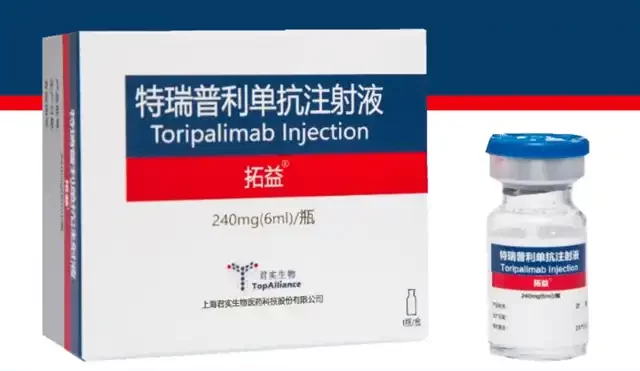First Chinese PD-1 Cancer Drug 30 Times More Expensive in US
- Normal Liver Cells Found to Promote Cancer Metastasis to the Liver
- Nearly 80% Complete Remission: Breakthrough in ADC Anti-Tumor Treatment
- Vaccination Against Common Diseases May Prevent Dementia!
- New Alzheimer’s Disease (AD) Diagnosis and Staging Criteria
- Breakthrough in Alzheimer’s Disease: New Nasal Spray Halts Cognitive Decline by Targeting Toxic Protein
- Can the Tap Water at the Paris Olympics be Drunk Directly?
First Chinese PD-1 Cancer Drug 30 Times More Expensive in US than in China
- Should China be held legally responsible for the US’s $18 trillion COVID losses?
- CT Radiation Exposure Linked to Blood Cancer in Children and Adolescents
- FDA has mandated a top-level black box warning for all marketed CAR-T therapies
- Can people with high blood pressure eat peanuts?
- What is the difference between dopamine and dobutamine?
- How long can the patient live after heart stent surgery?
First Chinese PD-1 Cancer Drug 30 Times More Expensive in US than in China
The first Chinese PD-1 cancer immunotherapy drug is priced 30 times higher in the United States than in China.
Toripalimab has become the first and only drug approved for the treatment of nasopharyngeal cancer in the United States. How does its price compare between China and the United States?
Toripalimab (brand name in the United States: toripalimab-tpzi), the first Chinese produced PD-1 cancer immunotherapy drug to be launched in the United States, has a significantly different price in the U.S. compared to China.

Recently, the U.S. partner of Junshi Biosciences, stated in a securities filing that the wholesale acquisition cost of Toripalimab is $8,892.03 per bottle.
The drug is available in a 240mg specification, with a current selling price of RMB 1,912.96 (about US$270) in China. In a simple comparison, the U.S. price is more than 30 times higher than the Chinese price.
On October 29, Junshi Biosciences announced that Toripalimab, a PD-1 monoclonal antibody developed independently by the company, received approval for market launch in the United States. This marks the first innovative biopharmaceutical developed and produced in China to be approved for market launch by the U.S. FDA.
The two approved indications cover the comprehensive treatment of recurrent/metastatic nasopharyngeal cancer. These include Toripalimab in combination with cisplatin/gemcitabine as first-line treatment for adult patients with metastatic or recurrent locally advanced nasopharyngeal cancer, and Toripalimab monotherapy for adult patients with recurrent, unresectable, or metastatic nasopharyngeal cancer with disease progression after platinum-containing treatment.
This approval makes Toripalimab the first and only drug approved for the treatment of nasopharyngeal cancer in the United States, filling a treatment gap for nasopharyngeal cancer in the country.
Toripalimab is China’s first Chinese produced PD-1 monoclonal antibody, initially approved for market launch in China in December 2018. Currently, multiple PD-1 monoclonal antibodies have entered the Chinese market, making competition in the industry intense. For Chinese PD-1 monoclonal antibodies, expanding into international markets is expected to increase sales.
The United States is the world’s largest market for innovative drugs. With the support of free pricing and patent laws, innovative drugs have the potential to command high prices here, attracting numerous pharmaceutical companies. However, this still tests the sales capabilities of pharmaceutical companies.
Junshi Biosciences has entrusted the sales of Toripalimab in the United States to Coherus BioSciences. In 2021, Junshi Biosciences and Coherus BioSciences reached a cooperation agreement on the development and commercialization of the PD-1 monoclonal antibody drug Toripalimab injection in the United States and Canada. According to the agreement at that time, for the Toripalimab project, Junshi Biosciences will receive milestone payments totaling no more than $380 million after reaching the corresponding milestone events, plus a 20% sales share of Toripalimab’s annual net sales in the licensed territories.
The approved indication for Toripalimab in the United States is nasopharyngeal cancer, which is a small indication, and the sales revenue is still relatively limited. Recently, Yao Sheng, Senior Vice President of Junshi Biosciences, also told a reporter from First Financial that according to the estimate of Coherus, there are about 2,000 new cases of nasopharyngeal cancer in the United States each year. It is expected that the annual peak sales of Toripalimab in the United States can reach $200 million.
First Chinese PD-1 Cancer Drug 30 Times More Expensive in US
Reference:
https://finance.internet.cn/2023-11-28/detail-imzweitr6437803.d.html?vt=4&cid=76556&node_id=76556
https://weibo.com/ttarticle/p/show?id=2309404973097143894289
(source:internet, reference only)
Disclaimer of medicaltrend.org
Important Note: The information provided is for informational purposes only and should not be considered as medical advice.



